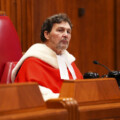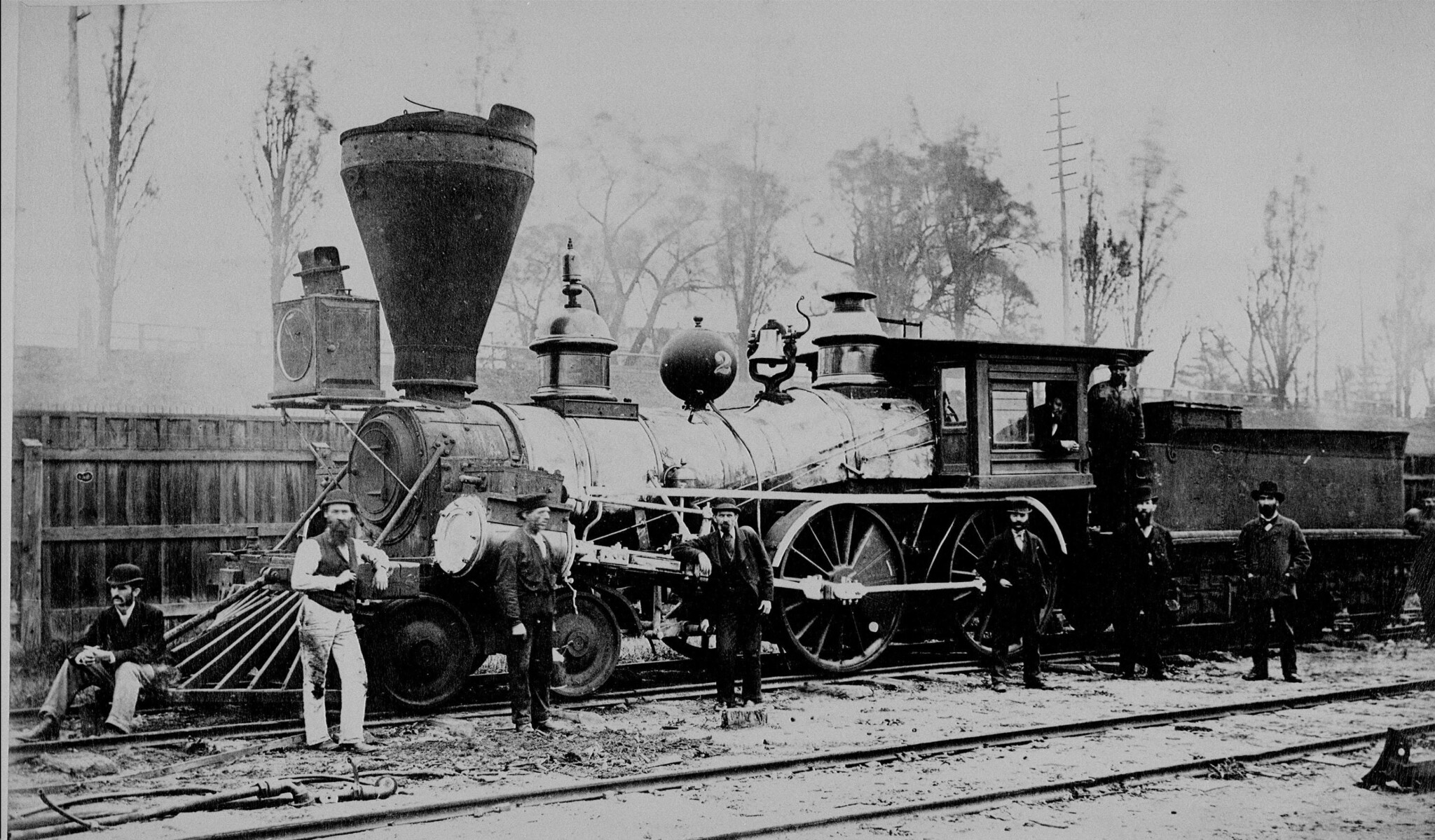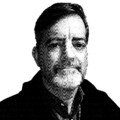The Hub is pleased to present a regular column from author and historian Antony Anderson on the week that was in Canadian history.
The 1860s: Canada comes into its own
In the spring of 1861, the most renowned correspondent of the age, William Howard Russell, who had made his name at The Times pioneering an almost whole new form of front-line war journalism with his searing dispatches from the Crimean conflict, visited the United States just before the outbreak of its civil bloodbath. He also traveled through the United Province of Canada (established in 1841), the largest and most populous piece of British North America. His insights and anxieties are captured in his 1865 book, Canada; Its Defences, Condition, And Resources.
Then as now, it was a minor miracle that an international reporter would want to write about Canada, and in detail. A June 1863 article from The Times summed up the typical British attitude, “We listen with open ears to the faintest rumour of a cabal that threatens to cripple or depose one of [U.S. President Abraham] Lincoln’s Generals but who is Minister, if any, at Quebec or any other seat of British government in America, we none of us know. If we knew to-day we should forget tomorrow.” Russell’s interest was ignited by the dread of disorder spreading across the sprawling, translucent, and indefensible border.
Officially neutral, Great Britain did not recognize the breakaway southern confederacy of slave owners as a sovereign nation. However, there were swaths of British aristocracy and mill owners, dependent on southern cotton—harvested by slaves—who were sympathetic to the cause. British merchant ships broke through the North’s blockade of southern ports to keep trading in cotton and tobacco. British North America was already seen by many Americans as a puzzling anomaly, a pathetic monarchist rump, an enduring rebuke to the glorious American revolution, “always mentioned,” as Russell noted, “in such a tone of contempt.”
This contempt, amplified by a general ignorance of all things Canadian, was preyed upon and inflamed by “violent journals” and “intemperate politicians.” Perhaps unfairly, Russell judged, “The credulity of the American mind is beyond belief.” He heard so many official and unofficial voices clamouring for the republic to march north and “liberate” Canada that he came to fear “the great American people, with hands dyed in their brothers’ gore, and who, having sacrificed friendship, traditions, constitution, and liberty at home, will think but little of adding to the pyre of their angry passions the peace and happiness of others.” In this pandemic of war fever, Russell held out a sliver of hope: that was the moderate, silent majority he believed existed which would ultimately restrain their fellow Americans from going over the edge.
Russell ventured north of the border in January 1862 and found a Canada steeped in its own contempt for the raging republic. Foreshadowing Pierre Trudeau’s much-quoted line from 1969 likening Canada-U.S. relations to living next door to an elephant, Russell saw that Canadians were keenly aware that they were “much under the influence of the unruly fellow…There is no great love for him; but his prodigious kicks and blows, his threats, his bad language, his size and insolence, frighten them up here.” The relationship was as intertwined and complicated then as it is today.
As he rode the train into Hamilton, noticing the change in the accents around him, now hearing more Scotch and Irish, Russell noticed that Canadian passengers seemed to be reading mostly American newspapers. The same held true when he left Cornwall for Montreal, even for francophones, devouring American periodicals in English, which appeared to have been pirated. Russell was impressed by the political framework constructed by these British subjects, writing, “Canada has the most liberal institutions in the world— her municipal freedom is without parallel—education is widely disseminated—religious toleration restrains the violence of factions.”
He admired the fact that francophones who had taken to arms and rebelled in 1837 and 1838 now held loyal, responsible offices in service of the Crown. But his admiration for Canada was undercut by the fact that this country had done little to secure its own defence against the U.S. There had been much talk and many proposals but Russell could see Canadians were ultimately counting on the Mother Country, an ocean away, to defend them. “There is no sign as yet that the Canadians will quite arouse from a sleep which no fears disturb, although they hear the noise of robbers. They will not prepare for war, because they wish for peace, and it is plain enough that if war should come instead of peace, England would be too late to save them, because she would be too far,” he explained.
He conceded that Great Britain did “undoubtedly owe something to Canada, from the bare fact that for many years she resisted temptation, and remained under our flag unmoved by the blandishments and threats of the United States.” But Russell insisted that Canada and the other British semi-colonies (Nova Scotia, New Brunswick, P.E.I., Newfoundland) needed to build up and pay for their militias and volunteer units.
In the interim, Russell espoused a parallel response to potential invasion, one that had been circulating at least since the 1830s when London pondered how to keep the peace after the rebellions: a formal union of all British North America. “It is surprising that it should have floated about so long, and have stirred men to action so feebly. I think it is the first notion that occurs to a stranger visiting Canada and casting about for a something to put in place of the strength which distant England cannot, and Canadians will not, afford…The time has come now in the white heat of American strife for the adoption of the process.”
The obstacles were many and formidable. The British subjects scattered from the Atlantic to the Pacific did not know or trade very much with each other. They were divided by language, religion and geography. Russell conceded these peoples shared “no bond of connection, except a common obedience to the Queen”, and that was stretching it. Still, he argued, “On the whole some such scheme appears to be the only practical mode of saving the British Provinces from the aggression of the North American Republicans.” Needless to say, the Indigenous nations were deemed irrelevant in this whole matter.
Perhaps he felt the dismay of a journalist racing to capture history on the run, but by the time Russell was preparing to see his book printed, politicians across British North America had launched the drive for Confederation at conferences in Charlottetown and Quebec City. Delighted by Westminster’s support for the peaceful Canadian evolution to self-government, Russell looked into the future and nailed it:
Generosity not inconsistent with justice may yet lay the foundations of an enduring alliance…A powerful State may arise whose greatest citizens shall be proud to receive such honours as the Monarch of England can bestow, whose people shall vie with us in the friendly contests of commerce, and stand side by side with us in battle. And when the inevitable hour of separation comes, the parting will not then be in anger.
Recommended for You

‘You have to meet bullying with counter-bullying’: David Frum on how Canada can push back against Trump’s trade negotiation tactics
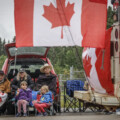
Michael Kaumeyer: Polite decline: Canada’s aversion to being our best is holding us back
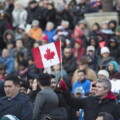
Howard Anglin: Lament for a Lament
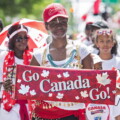
‘A place where anybody, from anywhere, can do anything’: The Hub celebrates Canada Day
